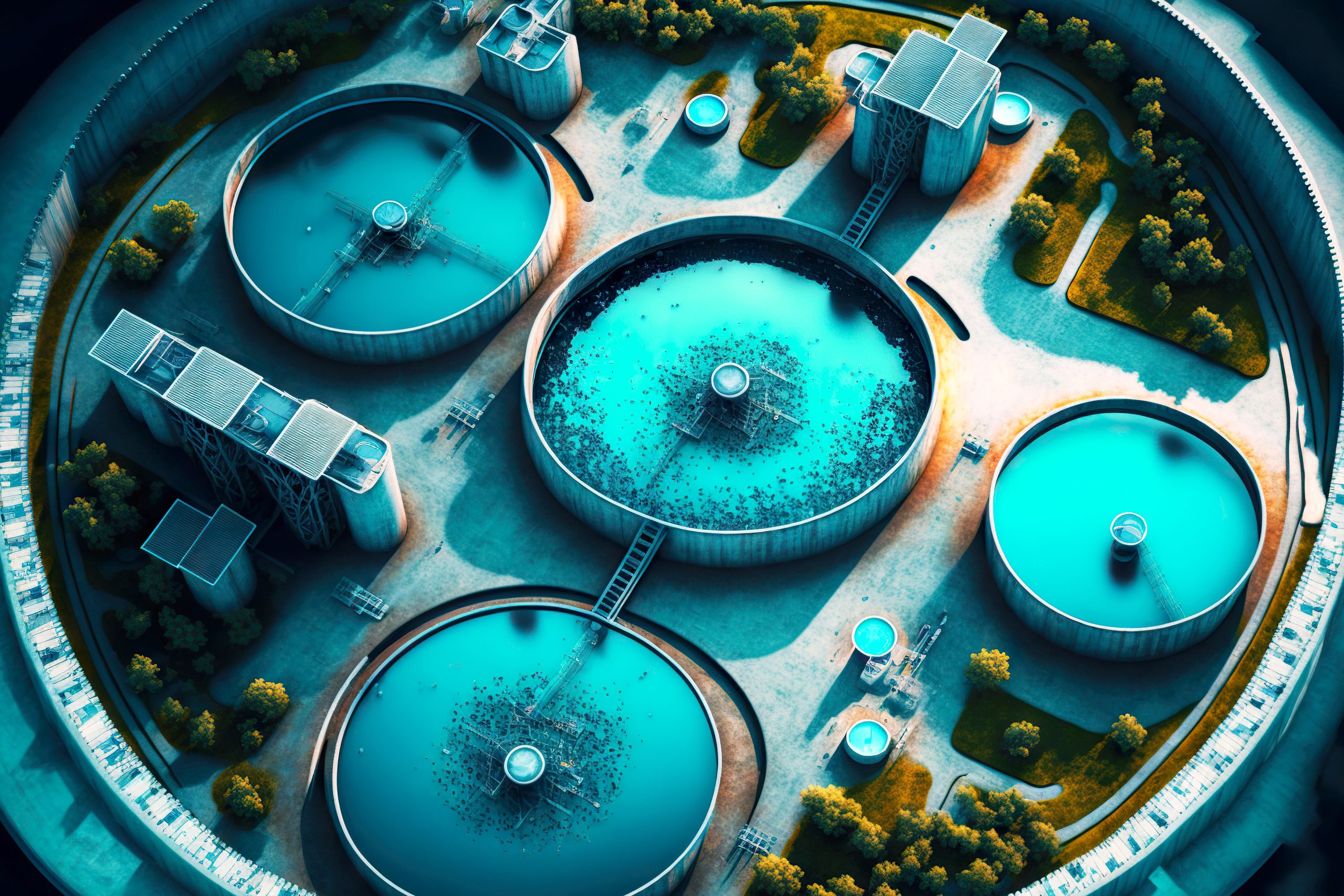Introduction to Smart Water Management
Water is the lifeblood of urban environments, fueling everything from household needs and sanitation services to ecosystems and industrial processes. However, as urban populations swell and the realities of climate change become increasingly pronounced, cities around the globe are facing pressing water-related challenges. These challenges include water scarcity, aging infrastructure, pollution, and the increasing frequency of extreme weather events such as floods and droughts. In response, the concept of smart water management has emerged as a vital strategy for cities seeking to navigate these waters sustainably.
Smart water management involves the integration of advanced technologies, data analytics, and innovative water governance practices to optimize the use, distribution, and quality of water. It represents a shift from reactive, inefficient systems to proactive, efficient, and sustainable water management solutions. By leveraging the Internet of Things (IoT), artificial intelligence (AI), remote sensing, and other digital technologies, smart water management systems provide real-time insights into water demand, supply, quality, and infrastructure status. This enables precise monitoring, control, and decision-making, ensuring water sustainability and resilience in urban settings.
The evolution of urban water systems towards smarter management is not just a technical upgrade; it’s a paradigm shift. Traditional water systems, often developed in a piecemeal fashion over decades, are typically siloed and inefficient, struggling to meet the complex demands of modern urban life. Smart water management, by contrast, offers an integrated and adaptive approach that can respond dynamically to changing conditions and priorities, from conserving scarce water resources to mitigating flood risks and enhancing urban livability.
This article explores the core pillars of smart water management, the technological innovations driving it, and real-world applications that showcase its transformative potential. Through global case studies, we’ll examine the successes and challenges of implementing smart water solutions, offering insights into the future of urban water sustainability. As we delve into this critical topic, it becomes clear that smart water management is not merely a technical endeavor but a cornerstone of sustainable urban development, essential for building the resilient, thriving cities of tomorrow.
The Pillars of Smart Water Management
Smart water management stands on several key pillars, each addressing different aspects of water sustainability and resilience. These pillars are integral to developing a comprehensive approach to managing urban water systems efficiently and sustainably.
Water Efficiency and Conservation
The first pillar focuses on maximizing water efficiency and promoting conservation across all sectors of urban life. Technologies such as smart meters and sensors enable precise monitoring of water usage in real-time, identifying leaks and inefficiencies that waste water and drive up costs. For households, smart irrigation systems can adjust watering schedules based on weather forecasts and soil moisture levels, significantly reducing outdoor water use. In industrial and commercial settings, water reuse and recycling systems, powered by advanced treatment technologies, turn wastewater into a resource rather than a waste product, supporting circular water economies within cities.
Advanced Water Treatment
Innovations in water treatment are crucial for ensuring the availability of clean, safe water and for expanding the sources of water available to cities. Advanced purification technologies, including membrane bioreactors, ultraviolet (UV) disinfection, and reverse osmosis, are key components of smart water management. These technologies allow for the effective removal of pollutants, pathogens, and other contaminants, making it possible to safely recycle and reuse wastewater. In addition, decentralized treatment systems can be integrated into urban landscapes, treating wastewater close to its source and reducing the energy and infrastructure costs associated with water transport.
Flood and Drought Mitigation
Smart water management also addresses the challenges posed by extreme weather events, including floods and droughts. Through the integration of advanced hydrological modeling, weather forecasting, and IoT sensors, cities can better predict and prepare for such events. Automated flood barriers, rainwater harvesting systems, and permeable pavements are examples of how smart technologies can mitigate the impacts of heavy rainfall and flooding. Conversely, smart drought management tools help optimize water allocation, ensuring critical water supplies are maintained during times of scarcity and supporting sustainable water resource management in the face of changing climate conditions.
Technological Innovations Driving Smart Water Management
The implementation of smart water management across urban landscapes is propelled by rapid advancements in technology. These innovations not only enhance the efficiency and resilience of water systems but also open new avenues for sustainable urban water management.
Internet of Things (IoT) and Sensors
IoT technology and sensors form the backbone of smart water management systems, enabling real-time monitoring of water quality, flow rates, pressure, and consumption across the water distribution network. These sensors can detect leaks, predict pipe failures, and provide critical data that inform maintenance decisions, significantly reducing water loss and improving system reliability. By equipping wastewater treatment plants with IoT sensors, cities can continuously monitor treatment processes and ensure compliance with water quality standards, adapting treatments as needed based on incoming water characteristics.
Artificial Intelligence (AI) and Machine Learning
AI and machine learning algorithms analyze vast amounts of data collected from sensors, weather stations, and other sources to predict water demand, identify system vulnerabilities, and optimize water distribution. These technologies can forecast weather patterns to prepare for flood events or anticipate drought conditions, allowing for proactive resource management. AI also plays a crucial role in detecting anomalies in water usage that may indicate leaks or unauthorized use, ensuring water is conserved and accurately billed.
Remote Sensing and GIS
Remote sensing technologies and Geographic Information Systems (GIS) offer valuable insights into water resource management on a larger scale. Satellite imagery and aerial drones can assess watershed health, track changes in land use, and monitor the extent of flood or drought impacts. GIS platforms integrate this data with urban infrastructure maps, supporting strategic planning for green infrastructure development, flood mitigation efforts, and the identification of areas at risk of water scarcity.
Advanced Water Treatment Technologies
Innovations in water treatment, such as membrane filtration, advanced oxidation processes, and nanotechnology, allow for the removal of pollutants, pathogens, and emerging contaminants more efficiently and at lower costs. These technologies enable the safe reuse of wastewater, reducing the pressure on freshwater sources and facilitating the implementation of circular water management practices within urban environments.
Global Case Studies: Smart Water Management in Action
Singapore: A Smart Water Management Pioneer
Singapore, a city-state with limited natural water resources, has become a global leader in smart water management. Through its “Smart Water Grid” initiative, Singapore utilizes IoT sensors and AI to monitor its entire water system, from reservoirs to taps. The use of NEWater, highly purified reclaimed water produced through advanced membrane technologies, showcases Singapore’s commitment to water sustainability. The country’s integrated approach to water management, combining desalination, water recycling, and rainwater capture, serves as a model for cities worldwide.
Amsterdam, Netherlands: Smart Rainwater Management
In Amsterdam, the “Rainproof” program aims to make the city more resilient to heavy rainfall events. Innovative solutions, such as green roofs, rain gardens, and permeable pavements, are integrated into the urban fabric. These are complemented by digital technologies, including rain sensors and smart water storage systems, that optimize the use of rainwater, reducing flood risk and enhancing urban water cycles.
Cape Town, South Africa: Overcoming Water Scarcity
Faced with a severe drought and the looming threat of “Day Zero” — when taps would run dry — Cape Town implemented an aggressive water management strategy. The city deployed a network of smart water meters and pressure management systems to reduce consumption and leaks. Public engagement campaigns, supported by real-time water usage data, encouraged residents to conserve water, demonstrating the power of technology and community involvement in averting a water crisis.
Challenges and Opportunities in Smart Water Management
Implementing smart water management systems presents cities with a unique set of challenges, including technological integration, funding and investment, data privacy and security, and the need for skilled personnel. Yet, these challenges also offer opportunities for innovation, collaboration, and policy development.
Technological and Infrastructure Integration: Merging new technologies with existing water infrastructure requires careful planning and investment. The opportunity lies in designing flexible systems that can adapt to technological advancements and scale according to urban growth.
Funding and Investment: The initial cost of implementing smart water technologies can be high. However, the long-term savings from reduced water loss, improved efficiency, and averted crisis events often justify these investments. Public-private partnerships, grants, and innovative financing models can alleviate financial constraints.
Data Privacy and Security: The collection and analysis of large volumes of data raise concerns about privacy and security. Cities must implement robust cybersecurity measures and transparent data policies to build public trust and ensure the secure handling of sensitive information.
Skilled Workforce: The transition to smart water management requires a workforce skilled in new technologies and data analysis. Investing in education and training programs is crucial for developing the talent needed to design, implement, and maintain these advanced systems.
The Future of Urban Water Sustainability
As urban areas continue to expand and face increased water-related challenges, the adoption of smart water management practices becomes essential. The future of urban water sustainability lies in leveraging technology, fostering innovation, and embracing integrated water resource management approaches. By prioritizing the development and implementation of smart water systems, cities can ensure a resilient, efficient, and sustainable water future for all residents. The journey towards smarter water management is not only about conserving resources but also about reimagining our relationship with water in the urban context, paving the way for greener, more sustainable cities.

